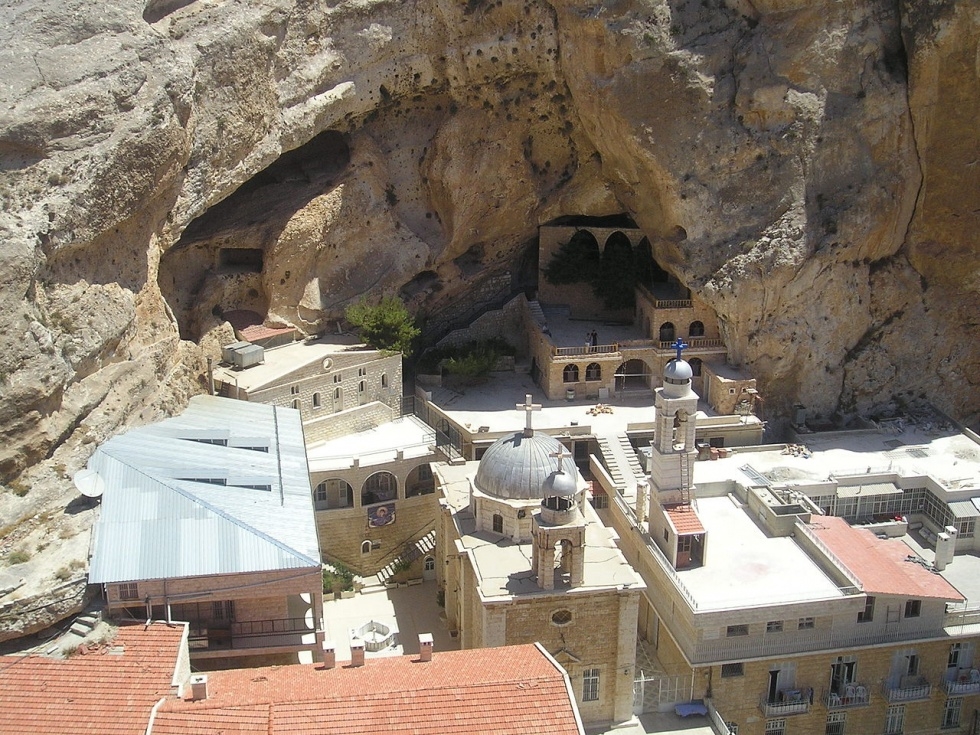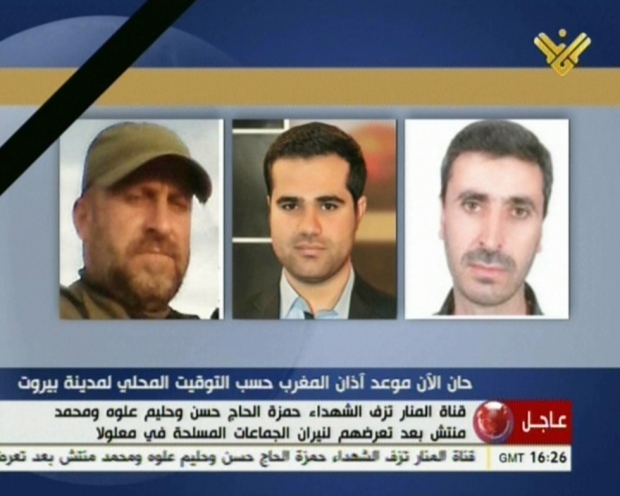Lebanese journalists killed as Assad's forces retake Maaloula

Syrian government troops retook the ancient Christian town of Maalula from rebels on Monday, a day after President Bashar al-Assad said the three-year old civil war was turning in his favour.
During the operation, Al-Manar television, the broadcaster of Assad's close Lebanese ally Hezbollah, said three of its employees were killed.
"The army has taken full control of Maalula and restored security and stability. Terrorism has been defeated in Qalamun," a security official said.
An AFP journalist in Maalula said the Al-Safir hotel, which rebels had been using as a base, was almost completely destroyed, with a facade that gave on to a cliff having collapsed.
Downhill from the hotel, the Mar Sarkis Greek Catholic monastery was also damaged, its walls pierced by mortar rounds, and icons and other religious objects strewn on the ground inside.
During the operation, Al-Manar said correspondent Hamza al-Hajj Hassan, technician Halim Allaw and cameraman Mohammad Mantash were gunned down by "armed groups," and expressed its condolences.
The three were fired on when they approached an area of town that had not yet been secured by the army, said journalists at the scene.
Their deaths mean more than 30 journalists have been killed covering Syria's war, which Reporters Without Borders describes as the world's most dangerous conflict to report on.
Maalula's capture comes after a string of successes in the strategic Qalamun region, relatively near the Lebanese border, including the seizure of the former rebel bastion of Yabrud last month.
The regime has prioritised capturing the area to protect the highway linking Damascus to Homs which runs through the country, as well as to sever rebel supply lines across the border with Lebanon.
Lebanon's Hezbollah, which has sent thousands of fighters to support Assad's troops, has played a key role in helping the regime secure Qalamun.
Maalula fell to rebels in December, but the Syrian Observatory for Human Rights said the regime and Hezbollah are now in "near-total control of the Qalamun area."
Many of the residents in picturesque Maalula speak Aramaic, the language spoken by Jesus, and the town is an important symbol of the ancient Christian presence in Syria.
After the town was captured by rebels, 13 nuns were seized from the Mar Takla Greek Orthodox convent and held by Al-Qaeda-affiliated fighters until a prisoner swap with the regime in March.
Maalula's fall comes a day after Assad said his government was gaining the upper hand in the conflict that began in March 2011 and has left more than 150,000 people dead.
"This is a turning point in the crisis, both militarily in terms of the army's achievements in the war against terror, and socially in terms of national reconciliation processes and growing awareness of the truth behind the (attacks) targeting the country," state news agency SANA quoted Assad as saying.
The conflict began as a peaceful protest against Assad, but has descended into a brutal civil war after a deadly crackdown. The regime has systematically blamed all violence on a foreign-backed "terrorist" plot.
Presidential elections are due to be held in June, and Assad is almost certain to run for re-election.
In a separate development, the “rampant use of torture” in detention centres run by the government and some armed opposition forces was denounced by Navi Pillay, UN High Commissioner for Human Rights, in a report released on Monday.
The use of torture by government forces amounts to war crimes according to the report, which was based on the testimony of victims and documentation by human rights organisations.
“Detainees are routinely beaten and humiliated for several hours by the guards in what has come to be known as the ‘reception party’”, the report said.
Meanwhile, the Organisation for the Prohibition of Chemical Weapons (OPCW) said Syria has surrendered "65.1 percent" of its chemical weapons arsenal, "including 57.4 percent of priority chemicals."
Under the terms of a US-Russia brokered deal reached last year, Syria has until the end of June to destroy its chemical weapons.
The agreement was reached after deadly chemical attacks near Damascus last August killed hundreds of people. Fresh allegations of chemical weapons use also surfaced on Sunday when activist footage captured disturbing images of people foaming at the mouth and struggling to breate, which could be signs of possible of chemical weapons use.
Middle East Eye propose une couverture et une analyse indépendantes et incomparables du Moyen-Orient, de l’Afrique du Nord et d’autres régions du monde. Pour en savoir plus sur la reprise de ce contenu et les frais qui s’appliquent, veuillez remplir ce formulaire [en anglais]. Pour en savoir plus sur MEE, cliquez ici [en anglais].


